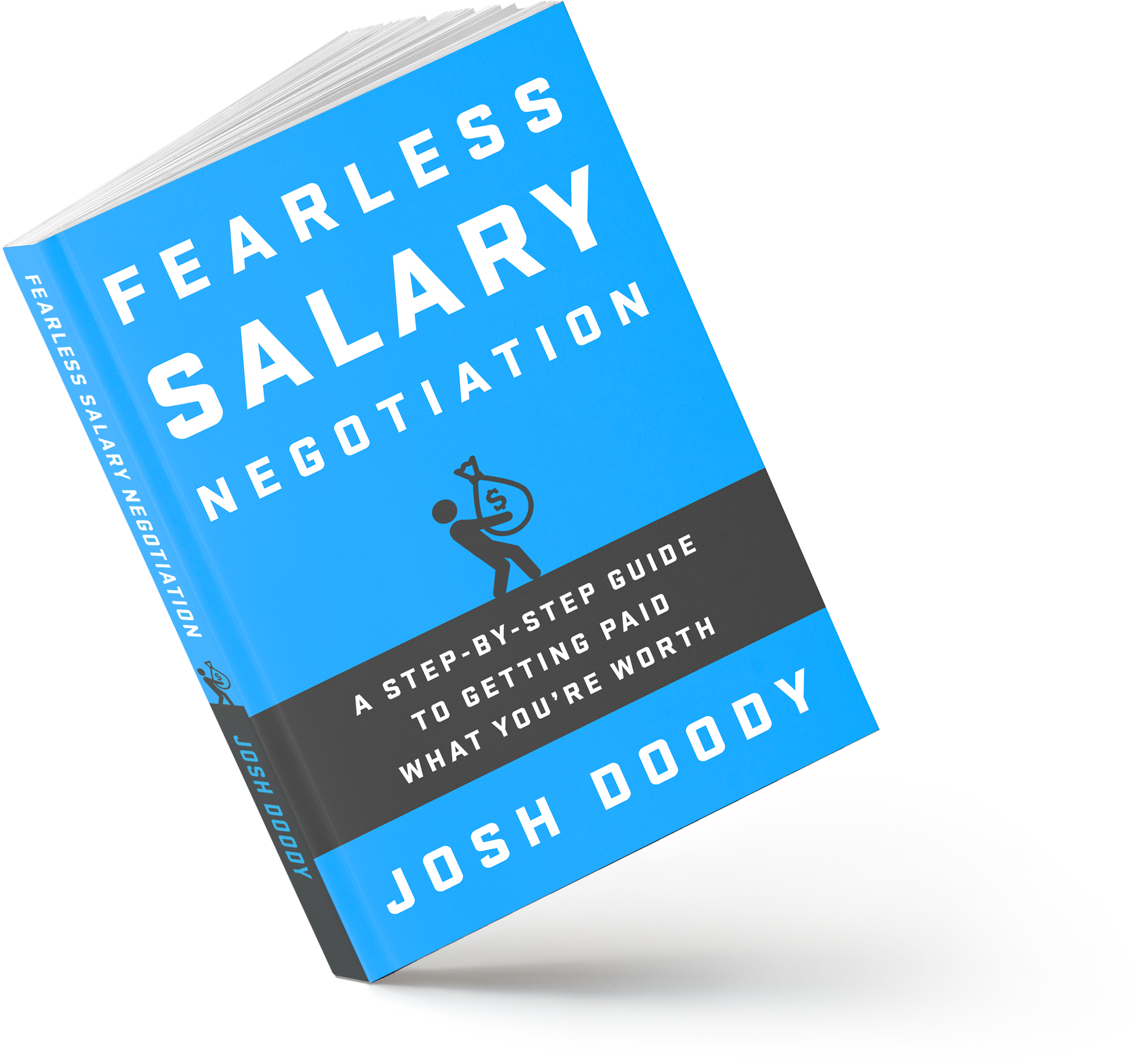The best way to prepare your case is to write it down. As it turns out, you’ll also want to have a written summary of why you deserve your raise later on (see the “Present your case” section below), so we’re going to kill two birds with one stone in this section by building an email that summarizes your case.
Here’s what your case for a raise will look like once you’ve written it down. I’ve numbered each section on the left side so we can talk about it afterward.
[3. Greeting] Hi [Your manager's name]
[4. Introduction and request] Thanks for your time the other day. As we discussed, it has been [amount of time] since ["my last significant salary adjustment" OR “since I was hired”], and I would like to revisit my salary now that I’m contributing much more to the company. I’ve been researching salaries for </strong>[job title]</strong> in [industry] industry, and it looks like the mid-point is around [mid-point from your research]. So I would like to request a raise to </strong>[target salary]</strong>.
[5. Accomplishments Intro] I’ve been working very hard to find ways to contribute value to our company. Here are some of my accomplishments over the past several months:
[6. Accomplishments]
- Activity to result
- Activity to result
- Activity to result
- Activity to result
[7. Accolades Intro] And here is some feedback I’ve received from clients and coworkers over the past several months—their feedback speaks louder than anything I could say:
[8. Accolades]
- Client or coworker name—"Quote" or general feedback documented in email or survey
- Client or coworker name—“Quote” or general feedback documented in email or survey
- Client or coworker name—“Quote” or general feedback documented in email or survey
[9. Conclusion and repeated request] I believe these accomplishments and feedback show that my work merits a higher salary, and [target salary] seems well aligned to the current market and with the additional value I am adding to our company since my current salary was set. I look forward to hearing what I can do to help make this happen.
[10. Signoff and signature] Thanks again for your time and consideration!
All the best
[Your name]
Now, all you need to do is go through the template and replace anything in bold with the appropriate piece of information. This should be pretty easy because you’ve already done all the hard work when you did your research earlier. Feel free to edit this email to make it your own. This is just a template to get you started and show you the bare necessities you should include to make this as useful as possible.
Let’s go section by section to build your email and make your case.
1. Address
You’re writing this to your manager or whoever who spoke to about your raise.
2. Subject
Make sure you include your name in the subject, and make it clear exactly what this email is about.
3. Greeting
Keep it short and sweet: “Hi Tina” will do. The bolded part is “Your manager’s name” because I’m assuming you’ll send this written request to your manager. If you’re sending it to someone different, you’ll want to change that to their name.
4. Introduction and request
Cut right to the chase and make it brief, specifically listing your desired salary.
Notice that I recommend you state the midpoint from your market research before your desired salary. This is so that the first number is a market number—a fact that is determined by external forces—and that should soften up your manager for your request. Your request will seem much more reasonable when presented immediately after the market-set midpoint.
You may also notice that the example refers to a conversation that has already happened (“Thanks for your time the other day.”). That’s because you won’t send this email cold—it will be a follow-up to a verbal conversation if at all possible. We’ll talk about that conversation more in the “Presenting your case” section below.
5. & 6. Accomplishments sections
Lay out your case as succinctly as possible. You should list no more than five accomplishments, so be sure to pick your strongest ones. This email isn’t a complete historical record of everything you’ve ever done for the company. This is a skimmable document that makes a strong case for whoever is holding the purse strings to give you a raise. You want the person reading this to think, “She’s already adding so much more value to the company then when she was hired. This seems like a totally reasonable request given all the money she has made and saved us since then.”
One of the benefits of preparing your case ahead of time is that you can be confident that your case is strong before you present it. If you have trouble with this section, that’s a red flag that your case may not be as strong as you anticipated, and you may not have earned as much of a raise as you thought. This isn’t an ironclad rule, but I recommend covering a reasonable amount of time (several weeks or a few months) in this section so that your case is as compelling as possible when you finally present it.
7. & 8. Accolades sections
Again, this should be brief, but should highlight your best results from the past six months to a year. This isn’t a complete record, it’s a skimmable list that should raise eyebrows when others see it. Remember that the person approving this raise may not know who you are, so you’re giving them a short summary of your accolades to let them know that they should be impressed with you because other people are impressed with you.
This section is less crucial than the “Accomplishments” section, but it really helps. If you have trouble completing this part, you may still move forward with your request, or you may not. Some jobs are very solitary and simply don’t garner accolades from clients or peers. I strongly recommend you have at least a couple items in this section before you present your case, but if your “Accomplishments” section makes a very strong case on its own, this section may not be necessary.
9. Conclusion and repeated request
State your request and make your case again as concisely as possible. No more than two or three sentences.
10. Signoff and signature
Thank your manager for her time and keep it brief.
Everything has now come together so that you know what you’re pursuing, and you have a written case that summarizes why you should be given a raise. This should help clarify your own objectives, and it will provide a handy reference for you as you present your case.

